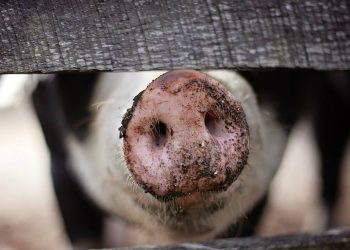In short…
Yield expectations for winter crops are above average for Romania, Bulgaria, France, Spain, Ireland, the Nordic countries and the Baltic countries, thanks to a sufficient water supply along the season. Around-average yields are expected in Germany, Poland and Hungary. Only in Italy and Türkiye are reduced yields due to heat and water stress likely.
Summer crop development in south-eastern Europe has been constrained by persistent rain deficit and high temperatures, notably in Hungary, Romania, Bulgaria, less prominently in southern Spain and in Italy. Biomass accumulation is below average, and yield reductions are expected.
Excessive rainfall in Finland and Estonia is complicating fieldwork and raising concerns about localised yield losses and deteriorated crop quality.
The spread of cicadas causing Stolbur disease in sugar beet and potatoes continues in Germany, particularly in the south.
As of July, green maize is included in the JRC MARS Bulletin analysis.
Areas of concern
Hot and dry weather poses risks mainly for summer crops
Persistent heat and dry conditions hamper summer crop development across southern and eastern Europe.
- Hungary and Croatia have experienced a precipitation deficit since late May and high temperatures in late June, which have also affected Slovenia. The growth of summer crops has been impacted.
- In Romania, Bulgaria and Greece, the hot and dry weather minimally affected winter crops, as they were already close to maturity, but strongly reduced the available soil moisture for summer crops. Low reservoir and river levels also reduced the amount of water available for irrigation. As a consequence, the growth of summer crops was disrupted during the late vegetative and early reproduction stages.
- In Italy, very high temperatures at end of June shortened the grain-filling period of winter crops and the flower fertility of early-planted maize. In central Italy, high temperatures were coupled with low soil moisture that affected the grain filling of soft wheat and the vegetative growth of sunflowers.
- In southern Spain and southern Portugal, the very high temperatures in June and at the beginning of July were suboptimal for rainfed or late-planted summer crops, most notably sunflowers.
- In western regions of France, summer crops are currently facing difficulties because of the hot and dry weather combined with a reduced water supply.
- In Germany, low precipitation since mid June combined with high temperatures increased stress on summer crops, mainly in the south and north-east.
Excessive rainfall in the Baltic region complicates field work and poses risks for winter crop yields
In Finland and Estonia, fieldwork operations have been complicated by excessive wetness that may limit field access, favour the development of crop diseases and localised hypoxia, and – if persisting – may negatively affect the winter crop yield.
Pest pressure has been spreading in Germany under warm and dry weather
In Germany, the warm and predominantly dry spring followed by an early summer promoted the spread of pests that have led to diseases affecting root crops such as sugar beet and potatoes. The spread of pests has particularly impacted areas from Rheinland-Pfalz to Bayern, where yield losses are expected.
Türkiye, Ukraine and Maghreb
- In Türkiye, dry conditions continue to affect winter crops in the main producing areas. Crops in reproductive stages in June experienced a shortened grain-filling period, while those still in the vegetative phase show reduced biomass accumulation.
- In southern Ukraine, the continued rainfall deficit has particularly impacted the development of summer crops. In the east, winter crop yields were reduced by the dry spring.
- In Morocco and western Algeria, dry conditions in winter and spring had reduced winter crop yields.
Further agricultural information
Subscribe to the JRC MARS Bulletin | JRC MARS (Monitoring Agricultural Resources) Bulletins
For comprehensive agricultural insights for Europe, explore the JRC AGRI4CAST website, which offers a wealth of information, tools, data and tutorials, including:
- JRC MARS Bulletins: Receive monthly analyses on crop growth conditions and yield forecasts for the EU and neighbouring countries.
- JRC MARS Bulletin Archive: Gives access to all bulletins published since 2007.
- AGRI4CAST Resources Portal: Utilise freely available datasets and software developed by AGRI4CAST for public use.
- Crop Forecasting Videos: Engage with an educational collection of videos that provide an overview of crop monitoring and yield forecasting activities.
For global agricultural insights, visit the JRC’s ASAP (Anomaly Hotspots of Agricultural Production) website to access the latest information on global agricultural production hotspots in countries at risk of food insecurity.
Links to related topics
O artigo foi publicado originalmente em JRC.





















































